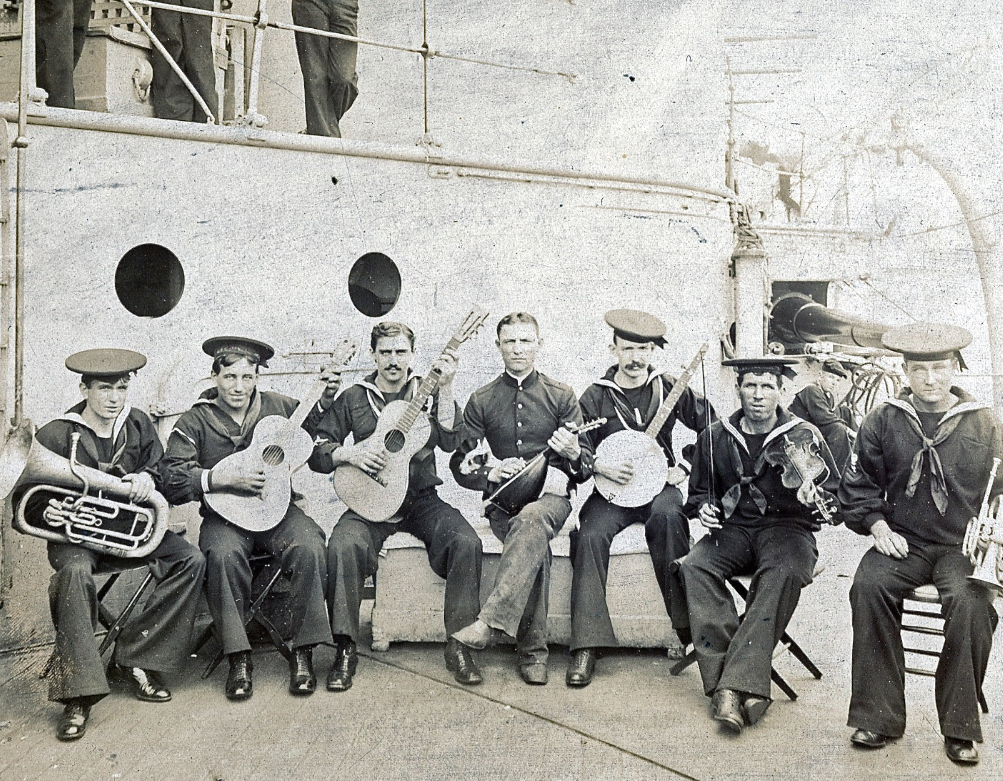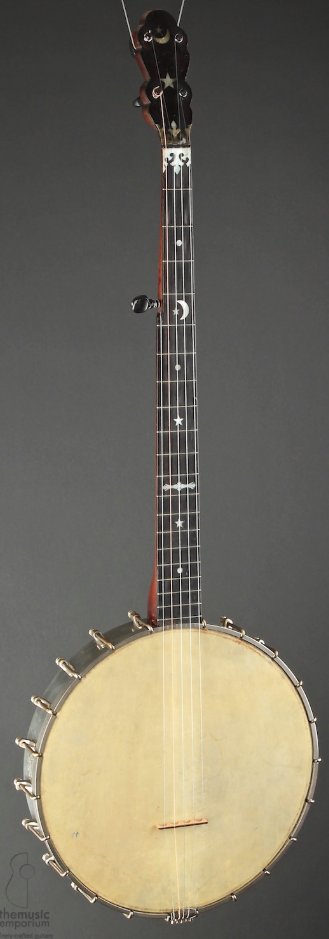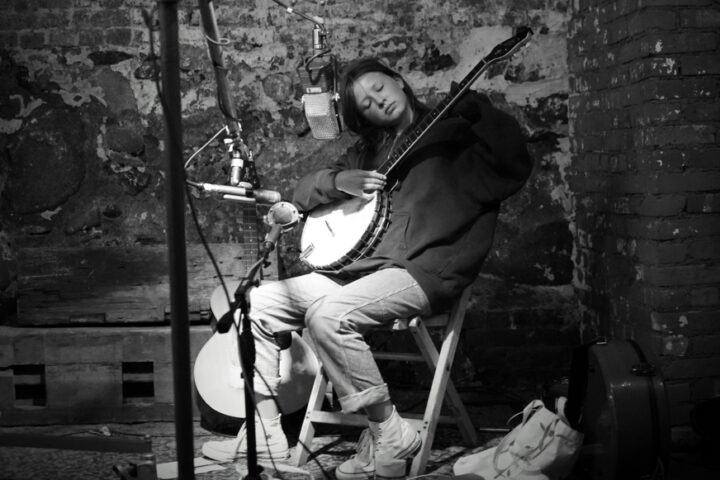Wine, car and art collectors get to talk about “provenance” all day long. Us fretted instrument fanatics? We’re usually left in the dark on who previously owned our prized vintage instruments. Here’s one noteworthy exception: a late 1800s Buckbee 5-string banjo with all the provenance you could ever ask for.
As paperwork shows, the banjo’s original owner was George W. Weindel, who served in the Navy from 1899. His first training cruise was on the (wait for it banjo fans) USS Hartford, a three-mast sailing ship with a steam powered engine, of course. Weindel’s next assignment was on the USS Massachusetts, a coal burning dreadnought (!) boat. As documented in his log book, in 1902 Weindel purchased this banjo along with weekly lessons from Edward Dobson for $30. A year later, he was out of the Navy, hanging out with this banjo in Central Park, meeting a girl or two and eventually joining a minstrel band based out of Brooklyn. (That’s a picture of him below.)
Though marketed as a Dobson banjo, this instrument was likely made by Buckbee. Starting in the 1860s, Buckbee was one of the earliest mass market banjo makers in the United States and provided white label banjos for a variety of retailers and instructors. Though Buckbee open-back banjos don’t have quite the collector status or value of a Fairbanks or high-end S.S. Stewart, they do have a following, especially when they’re in playable condition such as this one.
As the Music Emporium writes, this instrument is “a small time capsule unique in the history of the United States.” You’re paying a bit for the provenance here but imagine how cool would it be to strum an old-time tune on this instrument and daydream about its past adventures. (To further remind you of its prior owner, Weindel had his name and Broadway address engraved on the tension hoop.)
The family of Weindel is of course keeping the physical journals and paperwork listing the above events, but Stu Cohen at Music Emporium will make sure the banjo’s new owner gets scans of the pertinent pages related to this banjo. Added bonus: Cohen is one of the world’s foremost banjo historians so you’ll be in good hands if you have any questions about this instrument.
This piece of history is for sale at Music Emporium for $2,500.




